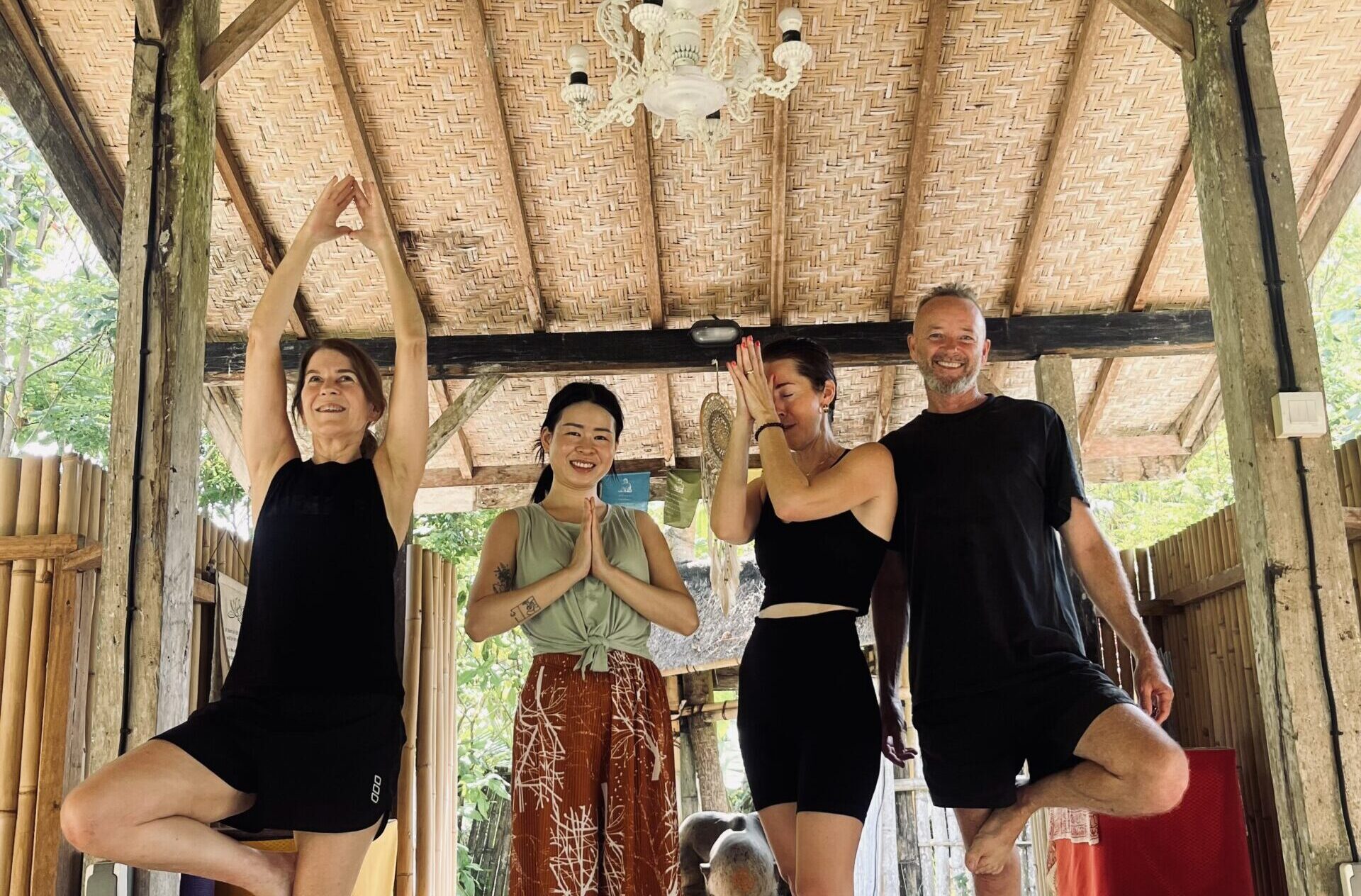Planning to visit Bali? To truly experience Bali’s magic, knowing a bit of the local language can make all the difference. While many Balinese people speak English, adding learn Balinese and Indonesian in a simple ways to your pre-travel checklist is a must-try.
Learning a local language might help you connect more intimately with the culture and cope with daily difficulties. Language difficulties might be scary, but do not fear. Read this guide to prepare yourself!
A Quick Overview of Language Used in Bali
When you visit Bali, you’ll find a unique blend of languages that reflect Bali’s rich heritage and modernity. Bali is a multilingual island, where three main languages dominate daily life: Bahasa Indonesia, Balinese (Basa Bali), and English.
Bahasa Indonesia is the official language of Indonesia and is used throughout the country, including Bali. It’s the language of education, government, and formal settings. Travelers may learn Indonesian easily since it employs the Latin alphabet and simple grammar.
Meanwhile, the Balinese language is a traditional language. Locals speak it regularly and use it in religious rites. Balinese has a complicated structure with three speech levels—low, medium, and high—depending on caste and social situation, unlike Indonesian.
Why You Need to Learn the Local Language?
While English is frequently spoken in tourist areas, learning the native languages can enhance your trip and help you connect with the island.
First, trying easy ways to overcome language barriers in Bali shows respect for the locals. Locals appreciate the effort, and embracing their culture will improve your trip.
Knowing basic words makes ordering meals, asking for directions, and shopping in local markets easier. Most importantly, mastering the local language lets you experience Bali’s rich cultural tapestry in rural regions, where English is less common.
Tips and Tricks: How to Learn Balinese and Indonesian in a Simple Ways
Now, let’s explore some tips and tricks to learn local languages in Bali effortlessly and make your travel more memorable:
1. Start with Greetings
Greeting people at the start of a talk makes a good first impression and sets a polite tone. So, greetings are the first step in being polite and nice.
Saying hello in their language shows that you care about their culture and are willing to work at it, whether you’re meeting people in a market, a restaurant, or a ceremony. A small action can make a big difference.
Many people use and like the words “Selamat pagi” (Good morning) and “Selamat sore” (Good evening) in Indonesian. Balinese people also say “Om Swastiastu” to meet each other, which is a traditional way to say “hello” and send benefits.
2. Remember Polite Phrases
Please keep in mind that being polite is very important in both Indonesian and Balinese cultures. Thank-you words like “Terima kasih” and “Suksma” (thank you in Balinese) can mean a lot. You need to know how to say “Maaf” (Sorry) if you need to say sorry or explain yourself.
These nice words will not only make your conversations go more smoothly, but they will also show that you understand other cultures. For example, adding “Tolong” (Please) to your request for help or directions makes it sound nicer and more polite.
3. Practice Common Questions
Common inquiries in Bahasa Indonesia might be very helpful when you are traveling around Bali. Asking “Toilet di mana?” (Where is the toilet?) or “Berapa harganya?” for instance (How much is the price?) will enable you to easily negotiate everyday contacts.
Particularly in less traveled-through Balinese places, queries like “Tiang rarisang?” (might you assist me?) might be life savers. Practicing these lines ahead of time can help your vacation be much more fun and hassle-free.
4. Try with Locals
The best way to learn any language is by speaking it with native speakers. Balinese locals are generally friendly and encouraging when visitors attempt their language. So, don’t be afraid to try phrases like “Apa kabar?” (How are you?) in Indonesian or “Rahajeng semeng” (Good morning) in Balinese.
5. Join a Workshop
For a deeper understanding to learn Balinese and Indonesian in a simple ways, consider joining a language workshop.
Many cultural centers and local communities in Bali offer short courses that cover both languages for tourists. So, you may meet other travelers who share the same interest in Bali’s culture and language.
Easy Ways to Overcome Language Barriers in Bali!
If you still find the local languages difficult to learn, there are some simple yet effective ways to bridge the gap and enjoy your Bali adventure to the fullest, such as:
1. Body Language
When words fail, your body can speak for you. Hand gestures, facial expressions, and pointing are universal ways to communicate. For instance, when ordering meals or getting instructions, pointing to a menu or map might assist.
Balinese locals are generally very understanding and friendly, so don’t hesitate to use gestures to clarify your needs. A smile goes a long way too—it shows friendliness and breaks down communication barriers instantly.
2. Write it Down
Sometimes, writing things down is more effective than speaking. If you’re struggling with pronunciation, jot down the name of your destination, food, or any specific item you’re looking for.
Showing the written word to a local can save you from confusion, especially in busy areas like markets or taxi stands. Having a small notebook or using your phone’s notes app can be a lifesaver during your trip.
3. Use Translation Apps
These days, your greatest travel buddy is often technology. For getting around language barriers, apps like Google Translate are very helpful.
These tools are especially useful for understanding signs, menus, or complex conversations. Just keep in mind to download the required language packs offline before visiting distant locations with perhaps restricted internet connection.
4. Hire a Local Guide
To make things go more smoothly, you might want to hire a local guide to help with translation and give you information about Balinese culture, traditions, and secret gems. They can help you find your way around shops, order food, and even haggle over prices.
Plus, having a guide makes your trip feel more like you. If you want to connect with locals more deeply, they can teach you simple words in Balinese or Indonesian.
Now that you know easy ways to overcome language barriers in Bali, it’s time to plan your trip here. Also, don’t forget to take your adventure to the next level by booking a Wellness Retreat with us at One Fit Wellness!








